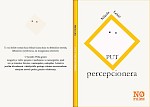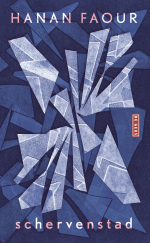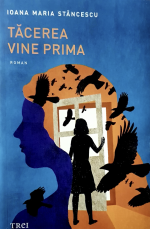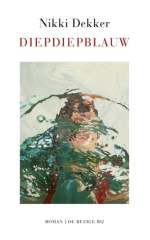View all filters
Clear
L'evoluzione di un dente
Translated from
Dutch
to
Italian
by Olga Amagliani
Written in Dutch by Alma Mathijsen
9 minutes read
Een afhankelijkheidsverklaring
Written in Dutch by Rebekka de Wit
8 minutes read

Lotosovi cvetovi, ki se zapirajo (ko se vanje stopi) (Pot perceptorja)
Translated from
Serbian
to
Slovenian
by Natalija Milovanović
Written in Serbian by Nikola Lekić
6 minutes read
Exilul
Written in Romanian by Anna Kalimar
7 minutes read
E lá longe Dedos Dez
Translated from
Dutch
to
Portugese
by Xénon Cruz
Written in Dutch by Joost Oomen
9 minutes read
Nunca lo estuve, pero ahora estoy. Susceptible a cualquier cambio del tiempo.
Translated from
Serbian
to
Spanish
by Ivana Palibrk
Written in Serbian by Marija Pavlović
10 minutes read

schervenstad
Nadine en haar tweelingbroer Isaac zijn op hun veertiende door het stukgelopen huwelijk van hun ouders ook van elkaar gescheiden. Isaac vertrekt met hun Libanese vader naar diens geboorteland, terwijl Nadine met hun Nederlandse moeder achterblijft in Noord-Limburg. Als de wereld jaren later wordt opgeschrikt door een explosie in de haven van Beiroet, weet Nadine één ding zeker: ze moet erheen.
Written in Dutch by Hanan Faour
9 minutes read
Bestie voi tutte dei campi
Translated from
Spanish
to
Italian
by Ilaria Garelli
Written in Spanish by Adriana Murad Konings
8 minutes read
Calcare
Translated from
Dutch
to
Italian
by Olga Amagliani
Written in Dutch by Lisa Weeda
8 minutes read
La ragazza che ascoltava gli uccelli
Translated from
Slovenian
to
Italian
by Lucia Gaja Scuteri
Written in Slovenian by Agata Tomažič
10 minutes read
Pronájem
Translated from
Portugese
to
Czech
by Štěpánka Huláková
Written in Portugese by Daniela Costa
7 minutes read
Copac monstru copil copac
Translated from
Spanish
to
Romanian
by Oana-Dana Balaş
Written in Spanish by Mariana Torres
9 minutes read
Uma bomba a iluminar a noite do Marão
Translated from
Portugese
to
Polish
by Gabriel Borowski
Written in Portugese by Daniela Costa
7 minutes read
Portrét
Translated from
Dutch
to
Czech
by Veronika Horáčková
Written in Dutch by Hannah Roels
6 minutes read

Eerst komt de stilte
Translated from
Romanian
to
Dutch
by Charlotte van Rooden
Written in Romanian by Ioana Maria Stăncescu
10 minutes read
Cuando las mentiras se acumulan a toda velocidad
Translated from
Dutch
to
Spanish
by Guillermo Briz
Written in Dutch by Carmien Michels
8 minutes read

Bokoplavutarica
Translated from
Dutch
to
Slovenian
by Nika Štrovs
Written in Dutch by Nikki Dekker
7 minutes read

grad od srče
Translated from
Dutch
to
Serbian
by Jana Živkić
Written in Dutch by Hanan Faour
7 minutes read
De evolutie van een kies
Written in Dutch by Alma Mathijsen
9 minutes read
Ja nisam bila, ali sada jesam. Osetljiva na svaku promenu vremena.
Written in Serbian by Marija Pavlović
8 minutes read